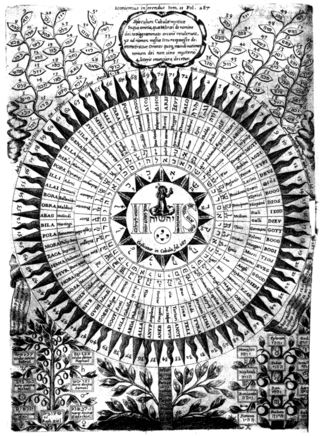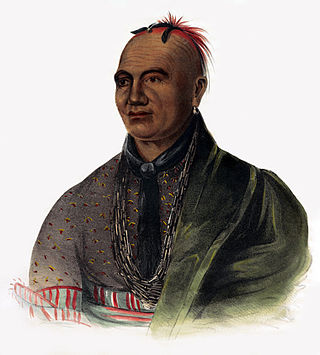Great Spirit may refer to:

The thunderbird is a legendary creature in particular North American indigenous peoples' history and culture. It is considered a supernatural being of power and strength.
The Hocągara (Ho-Chungara) or Hocąks (Ho-Chunks) are a Siouan-speaking Native American Nation originally from Wisconsin and northern Illinois. Due to forced emigration in the 19th century, they now constitute two individual tribes; the Ho-Chunk Nation of Wisconsin and the Winnebago Tribe of Nebraska. They are most closely related to the Chiwere peoples, and more distantly to the Dhegiha.

The Indigenous peoples of the Americas comprise numerous different cultures. Each has its own mythologies, many of which share certain themes across cultural boundaries. In North American mythologies, common themes include a close relation to nature and animals as well as belief in a Great Spirit that is conceived of in various ways.

There are various names of God, many of which enumerate the various qualities of a Supreme Being. The English word god is used by multiple religions as a noun to refer to different deities, or specifically to the Supreme Being, as denoted in English by the capitalized and uncapitalized terms God and god. Ancient cognate equivalents for the biblical Hebrew Elohim, one of the most common names of God in the Bible, include proto-Semitic El, biblical Aramaic Elah, and Arabic ilah. The personal or proper name for God in many of these languages may either be distinguished from such attributes, or homonymic. For example, in Judaism the tetragrammaton is sometimes related to the ancient Hebrew ehyeh. It is connected to the passage in Exodus 3:14 in which God gives his name as אֶהְיֶה אֲשֶׁר אֶהְיֶה, where the verb, translated most basically as "I am that I am" or "I shall be what I shall be", "I shall be what I am" In the Hebrew Bible, YHWH, the personal name of God, is revealed directly to Moses. Correlation between various theories and interpretation of the name of "the one God", used to signify a monotheistic or ultimate Supreme Being from which all other divine attributes derive, has been a subject of ecumenical discourse between Eastern and Western scholars for over two centuries. In Christian theology the word is considered a personal and a proper name of God. On the other hand, the names of God in a different tradition are sometimes referred to by symbols. The question whether divine names used by different religions are equivalent has been raised and analyzed.
Manitou is a general term for spirit beings among many Algonquian Native American groups.
Spirit of God may refer to:

Nanabozho, also known as Nanabush, is a spirit in Anishinaabe aadizookaan, particularly among the Ojibwe. Nanabozho figures prominently in their storytelling, including the story of the world's creation. Nanabozho is the Ojibwe trickster figure and culture hero.

The Great Spirit is the concept of a life force, a Supreme Being or god known more specifically as Wakan Tanka in Lakota, Gitche Manitou in Algonquian, and by other, specific names in a number of Native American and First Nations cultures. While the concept is common to a number of indigenous cultures in the United States and Canada, it is not shared by all cultures, or necessarily interpreted in the same way. According to Lakota activist Russell Means, a more semantically accurate translation of Wakan Tanka is the Great Mystery.

Gitche Manitou means "Great Spirit" in several Algonquian languages. Christian missionaries have translated God as Gitche Manitou in scriptures and prayers in the Algonquian languages.

Indigenous peoples of the Northeastern Woodlands include Native American tribes and First Nation bands residing in or originating from a cultural area encompassing the northeastern and Midwest United States and southeastern Canada. It is part of a broader grouping known as the Eastern Woodlands. The Northeastern Woodlands is divided into three major areas: the Coastal, Saint Lawrence Lowlands, and Great Lakes-Riverine zones.
Ahone was the chief god and creator in the religion of the Native American Powhatan tribe and related Algonquians in the Virginia Tidewater area. According to tribal legend, Ahone created the world as a flat disk with the Powhatan tribe at its center. He was also considered to be detached from mankind and required no offerings or sacrifices like many other gods. The god Oki was his wrathful counterpart.

The Walam Olum, Walum Olum or Wallam Olum, usually translated as "Red Record" or "Red Score", is purportedly a historical narrative of the Lenape (Delaware) Native American tribe. The document has provoked controversy as to its authenticity since its publication in the 1830s by botanist and antiquarian Constantine Samuel Rafinesque. Ethnographic studies in the 1980s and analysis in the 1990s of Rafinesque's manuscripts have produced significant evidence that the document may be a hoax.
The mythology of the modern-day Netherlands, Belgium and Luxembourg has its roots in the mythologies of pre-Christian cultures, predating the region's Christianization under the influence of the Franks in the Early Middle Ages. At the time of the Roman Empire and in the Early Middle Ages, some of the resident peoples of the Low Countries' included:

Manitou, akin to the Haudenosaunee orenda, is the spiritual and fundamental life force among Algonquian groups in the Native American theology. It is omnipresent and manifests everywhere: organisms, the environment, events, etc. Aashaa monetoo means "good spirit," while otshee monetoo means "bad spirit." When the world was created, the Great Spirit, Aasha Monetoo, gave the land to the indigenous peoples, the Shawnee in particular.

The Uncompahgre Ute or ꞌAkaꞌ-páa-gharʉrʉ Núuchi is a band of the Ute, a Native American tribe located in the US states of Colorado and Utah. In the Ute language, uncompahgre means "rocks that make water red." The band was formerly called the Tabeguache.
Wind spirit, Spirit of the Wind, and its variants may refer to:
Canadian folklore is the traditional material that Canadians pass down from generation to generation, either as oral literature or "by custom or practice". It includes songs, legends, jokes, rhymes, proverbs, weather lore, superstitions, and practices such as traditional food-making and craft-making. The largest bodies of folklore in Canada belong to the aboriginal and French-Canadian cultures. English-Canadian folklore and the folklore of recent immigrant groups have added to the country's folk.

The Heroes Twins are recurring characters from the mythologies of the indigenous peoples of the Americas. The specifics of each myth vary from tribe to tribe, but each story has a pair of twins who were born when their pregnant mother was killed by the tale's antagonist. Twins were considered unnatural in many cultures of this region, with beliefs about them having supernatural abilities.